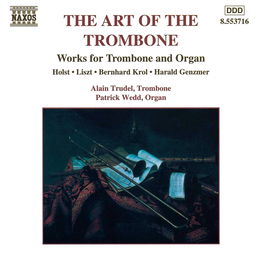Content:
Introduction: Diving into the serene world of angling, one quickly realizes that the pursuit of fish is not just about patience and luck; it's an art that requires skill, knowledge, and a deep understanding of the aquatic realm. Whether you are a seasoned angler or a beginner looking to improve your fishing game, mastering the technique of how to catch fish effectively is paramount. In this comprehensive guide, we will explore the best fishing techniques, equipment, and tips to ensure that you can reel in the catch of your dreams.
Choosing the Right Equipment: The foundation of successful fishing lies in the equipment you choose. Here are some essential items to consider:
-
Rod and Reel: Select a rod and reel that match the type of fish you are targeting. For example, a lightweight spinning rod is ideal for panfish, while a heavy-duty baitcasting rod is better for larger species.
-
Line: The type of line you use depends on the fish you're after and the environment you're fishing in. Monofilament is versatile and floats well, while fluorocarbon is nearly invisible underwater and excellent for clear water conditions.
-
Lures and Baits: Choose lures and baits that mimic the natural prey of the fish you're targeting. Live bait can be effective, but artificial lures can often be more versatile and fun to use.
-
Tackle Box: A well-stocked tackle box is essential. Include hooks, sinkers, swivels, split rings, and various lures to cover all your bases.
Understanding Fish Behavior: To catch fish effectively, you must understand their behavior and habitat:
-
Seasonal Patterns: Fish migrate and feed differently throughout the year. For instance, many species are more active during the spring when the water temperature rises.

-
Water Temperature: Fish are highly sensitive to water temperature. They tend to be more active in cooler water and less active in warmer water.
-
Habitat: Fish often congregate in areas with structure, such as rocks, logs, and weed beds, where they can find food and protection.
-
Feeding Patterns: Fish are most active during dawn and dusk, but they can also be caught during the day, especially in areas with deep water or shade.
Advanced Fishing Techniques:
-
Casting: Learn to cast accurately and effectively to reach your target without spooking the fish. Practice different casting techniques like the overhead cast, sidearm cast, and roll cast.
-
Bait Presentation: The way you present your bait or lure can make or break your fishing trip. Slow down your retrieve, especially in clear water, to avoid startling fish.
-
Leader Length: The length of your leader can affect your fishing success. A shorter leader may be more effective in clear water, while a longer leader can be beneficial in murky conditions.
-
Sensitivity: Pay close attention to your rod's sensitivity. The slightest tap can indicate a bite, so be ready to set the hook quickly.
-
Patience: Fishing is a waiting game. Don't get discouraged if you don't catch anything right away. Fish can be unpredictable, and patience is key.
Tips for Catching Fish:
-
Research: Before heading out, research the species you're targeting, their habits, and the best spots to find them.
-
Adaptability: Be prepared to change your approach if the fish aren't biting. Try different lures, baits, or techniques to see what works.
-
Respect the Environment: Always practice catch-and-release if the fish you catch are not legal to keep. This helps preserve the fish population for future generations.
-
Safety First: Always check the weather forecast and water conditions before heading out. Wear appropriate clothing and safety gear, such as a life jacket if you're fishing from a boat.
Conclusion: Catching fish effectively is a blend of skill, knowledge, and practice. By choosing the right equipment, understanding fish behavior, mastering advanced techniques, and applying essential tips, you'll be well on your way to becoming a proficient angler. Remember that fishing is a journey, and each trip offers a new opportunity to learn and improve. So, get out there, enjoy the great outdoors, and start reeling in those fish!












